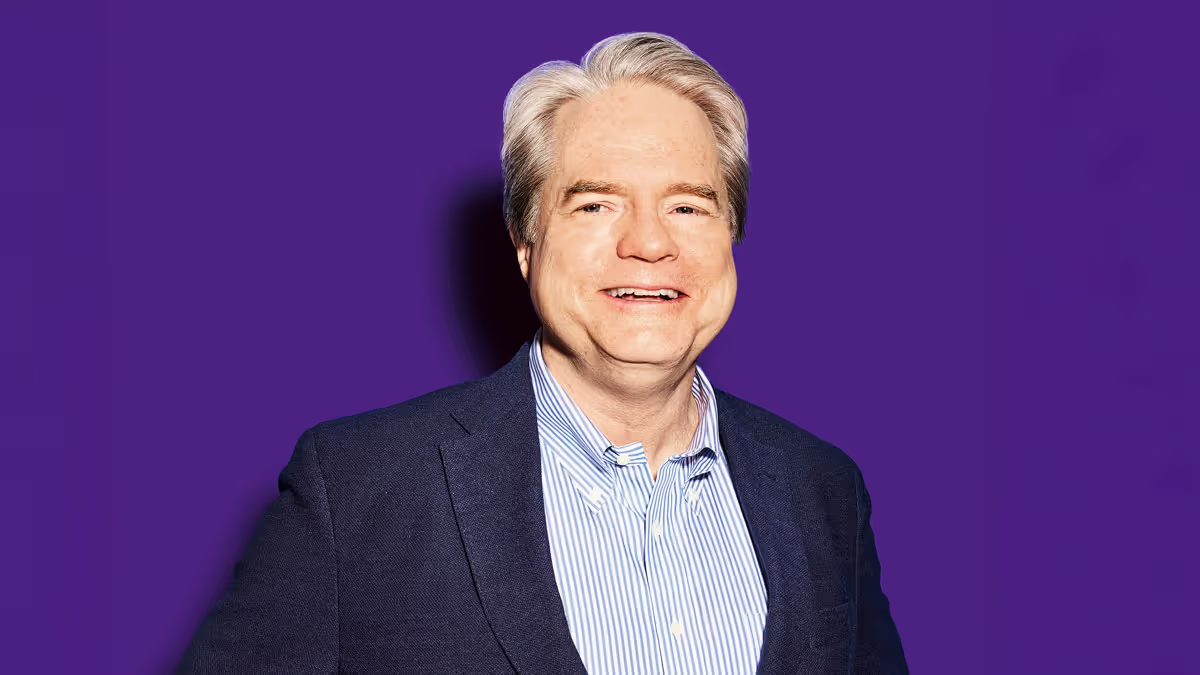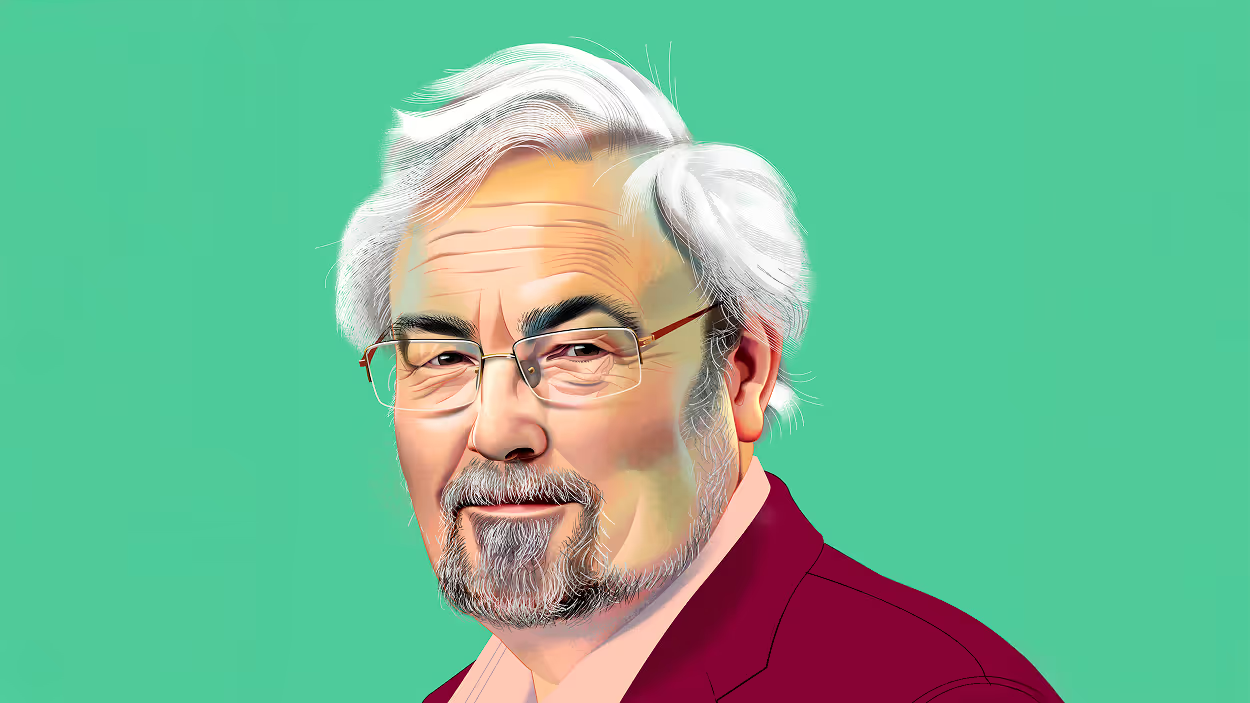
A blueprint for success and breaking barriers in leadership
Shellye Archambeau set her sights on becoming a CEO when she was 16. As the first senior Black female executive to represent IBM abroad and later lead a Silicon Valley company, she believes it pays to be unapologetically ambitious, set a clear path in life and keep pursuing diversity goals.
Wishes that come true very often unfold in ways quite different from what we imagined. That’s what long-time IBM executive Shellye Archambeau experienced when she received the call to become CEO of a Silicon Valley-based tech company right after the dotcom bubble burst. She quickly discovered that a lifetime of facing adversity since attending an all-white school had prepared her well. “It was the early 2000s, and Silicon Valley is on fire. I get there and there’s innovation, creativity – I just assumed it was also going to be pretty diverse. Actually, there weren’t many women or minorities leading things. I thought to myself: Here we go again in terms of pushing through anyway.” What made the difference time and again, Archambeau tells Think:Act Magazine in an interview, is to plan your career and life moves early and then evaluate constantly – and course-correct as needed.

You compare going through life and achieving your goals to the job of a pilot – setting off with a clear destination and flight plan. When is the right time to define those goals and the way to get there?
It’s never too early to plan and it’s never too late. If you don’t have goals or an objective in mind, then I don’t know how you can optimize the decisions that you make every day. Having a goal in mind helps you focus your energies to actually improve your odds to achieve it.
Not many kids in high school come up with a clear career goal, let alone to become a CEO, like you did. What prompted you to reach so high, and so early?
I realized early in life that the odds just weren’t in my favor to get the things that I might want. So, I became very intentional in terms of figuring out how to make it happen. Combine that with a fateful conversation with a high school guidance counselor who asked if I wanted to go to college and what I wanted to do after college. I had no idea. I just wanted to make enough money to keep my thermostat at 72 degrees, eat out in restaurants and travel, because those are all things I couldn’t do as a kid. She asked me: “What do you like to do?” I said: “That’s easy. I like all my clubs in school.” I was in everything – and I liked to run them. She told me clubs are like business: You pull people together; you get things done. When I found out the people that ran businesses were called CEOs, I told my parents, at 16, I want to be a CEO. But honestly, I had no idea what that really meant.
You didn’t just want success in business, but also marriage, children and a good lifestyle. Aren’t there opportunity costs incurred by planning everything versus exploring interests and passions?
When I said those were things that I wanted, that was back in the late 1970s, early 1980s. And when I looked around, CEOs were men with stay-at-home spouses. I realized I needed to find a person that was going to be my life partner and who would be willing to support my career. So, I made a little list of things that I looked for as I was dating. I found a man who I was absolutely in love with, and he was absolutely willing to support our family and me. If I hadn’t been intentional about that, I think it would have been even harder for me.
Regardless of the industry one chooses, you offer one very specific piece of advice: “I don’t care what you want to do in life, the best first job is a sales job.” Can you explain?
To this day, I use more of the skills that I learned in sales than any other job I have held. First of all, a sales job is basically coming up with solutions. You learn how to create win-win situations. You learn how to read the room and understand where the power really lies. You learn that “no” doesn’t mean “no.” It means something’s not right – the price, the time, the level of authority. By getting “no’s,” you get the opportunity to find out how you can fix it. You also learn how to create teams where people want to work for you and help you.
Right after finishing your undergraduate degree at the Wharton School of Business, you joined IBM. Is a large corporation still the best way to lay the foundation for an executive role, and perhaps even skip an expensive MBA program, like you did?
It depends on what kind of leader you want to be. If you want to become a leader of companies at scale, then large companies offer great learning opportunities on how you manage and develop people. I spent half my career in large corporations and half my career in startups. And that combination, I think, is terrific. Can you do it either way? The answer is yes. But it is harder to move from running and building entrepreneurial companies to actually going to run and lead a company of huge, global scale.
During your 15 years at IBM, you eventually became the first Black female executive to be assigned abroad. What was the main learning you took away, especially from this posting in Japan?
I had developed a lot of skills as a minority in the US that really jump-started me when I went abroad. As a Black woman, especially in technology, I know that when I show up in a job, people will look at me and think: Does she really deserve this role? Is she really capable? I’m going to be second-guessed. Therefore, I’ve always learned how to take on a new role and work through all those issues. When you live in a different country, it’s almost the same thing. Who are you? Why do you think you belong here? If you didn’t have that experience before, it’s a shock that all that you’ve done doesn’t naturally come with you as a pedigree.

“Ambition is not a four-letter word. Ambition doesn’t mean ‘take no prisoners, step on people, do whatever it takes.’ That’s just being rude.”
Your initial life goal was to become CEO of IBM. Why did you eventually decide to leave the company where your father had already worked and move to Silicon Valley?
It was the hardest decision I’ve made to date in my career. I kept getting signals that indicated I’m not sure I’d really have a chance to compete for the CEO role. It felt like I was born and raised in IBM – all my friends were IBMers and I was married to an ex-IBMer. Leaving was like leaving a family, but my drive to be a CEO outweighed it. I needed to go someplace else to be able to make this happen. I had led big organizations with tens of thousands of people and billions of dollars and knew how to work that. Why go to another big company instead of taking all the learnings to help build something?
You finally arrived in Silicon Valley, right after the dotcom bust, became CEO of a small company that was in dire straits and you spent the next 14 years turning it around. MetricStream is still alive. What gave you the confidence you could pull it off?
I’m a very determined and competitive person. I believed that if we pulled together the right team and we found the right problems to solve, we could make this work. My favorite part about being a leader is showing people that they can do more than they think they can do.
The title of your book, in which you recount all of these experiences, says it all: Unapologetically Ambitious. Do you mean that women and minorities are given the feeling that they need to apologize for being ambitious?
I can’t tell you the number of times I – and others – have been told: “Oh, you’re ambitious!” And it’s not meant as a compliment ... Think about that. You would never raise your children, tell them to work hard, get good grades, show leadership, be involved but, oh, don’t be ambitious? Women are raised to apologize to make the rest of the world feel better. We apologize to smooth feathers and show empathy. Apologies make things go smoother, but we have to stop doing it, because when we apologize all the time, people think we actually are sorry and we actually are responsible. I say “unapologetically ambitious,” because it’s okay to be ambitious. Ambition is not a four-letter word. Ambition doesn’t mean “take no prisoners, step on people, do whatever it takes.” That’s just being rude.
Being successful often depends on mentors. What are your thoughts on how to find the right people to be your mentor?
Mentors are critically important. Studies show that people who have mentors go farther faster in their career. Now, finding mentors is a challenge. I learned two things early on. Mentorship does not have to be formal, and you can have multiple mentors. So, I spent the rest of my career adopting mentors. If I asked somebody to be a mentor, their eyes would get a little wide. Many people don’t want to commit to this.
Then how do you sway them?
Well, I just started treating people like mentors, asking them for a little advice that only takes a minute. Hey, I’ve seen you present, and you do a really good job. I have a presentation coming up, can you give me just two quick pieces of advice? They wouldn’t even have to think about it. I’d take the advice and then come back a few weeks later. Thank you so much, it helped me give the best presentation so far. You probably don’t remember even giving me the advice, because it was no investment on your part. And now you get this “thank you note” and your heart feels warm. The next time I reach out, we start building a relationship. Before you know it, you’re mentoring me – and you never even signed up for it.
Executives need to know what they are good at and — as the common wisdom goes — iron out their weaknesses as well. You beg to differ and favor strengthening one’s strengths. Why?
You become known for your strengths, and it’s those strengths that cause people to invite you to join their team or get you promoted. Don’t spend time trying to strengthen a weakness, because it’s going to take so much time and effort for marginal improvements. If I have a strength, I’d spend an extra two hours working on it. Watch your weaknesses so they aren’t detractors, sure, but don’t spend time trying to turn them into strengths.
“To me, diversity starts top-down. A lot of it comes down to leadership, execution and the focus of that intent. It’s not about words.”

Ambition comes with the burden of being pushed into roles where we don’t feel comfortable yet. We can all suffer from impostor syndrome under those circumstances. In your experience, what’s the best way to deal with it?
Impostor syndrome is a mindset issue when you basically feel like you don’t deserve something and fear that people will figure out you are a fraud. It can haunt people who are very skilled and very talented, especially women. I don’t know if you can ever overcome it, but I think you can learn how to work through it and manage it by realizing that most people suffer from it. It’s not you – it’s kind of in the air. And always remember: Others wouldn’t ask you to do something if they didn’t believe you could do it. If you can’t believe in yourself, believe them to pull you up.
Much more so than men, women often face the dilemma of feeling they have to choose between having a career and a life. The standard answer is to seek a work-life balance. What’s your take on this after a lifetime in management roles?
I really don’t like the term “work-life balance,” because a balance is a fixed structure with two weights on either side that never move. But life isn’t static. I think we should think of it as “work-life integration” instead. What are your personal and professional priorities? You put those two things together, and then you reprioritize ruthlessly so that you get done what’s important across your life. That approach allows you to ebb and flow with your life. There’ll be times when it’s all-in at work, but there are also periods when other things are much more critical.
The Wall Street Journal crunched the numbers for S&P 500 companies diversifying their management since 2020. The verdict was: “Corporate diversity pledges and DEI haven’t generated much diversity.” In 2023, one in 20 senior managers was Black — less than half the share of Black workers in the broader US workforce. Have those efforts and programs moved the needle at all?
It’s really hard to talk about broad averages in terms of how companies have approached it. A lot of companies have absolutely improved their overall diversity. There are also companies that have put programs in place that haven’t been effective. What I do know for sure is that boardrooms are much more diverse than they were 10 years ago, both from a gender as well as a racial standpoint. To me, diversity starts top-down. A lot of it comes down to leadership, execution and the focus of that intent. It’s not about words.
The pendulum seems to be swinging back violently. Many companies have removed DEI language from their mission, vision as well as corporate culture documents. Does this worry you?
I am very disappointed that DEI has become a political hot potato and companies don’t want to draw unnecessary attention and targeting. They seem to think if these are lightning rod terms, then let us change the words we use so we don’t get any unwanted attention. Some companies are absolutely pulling back, but I will tell you definitely not all. They might be changing words, but in terms of how they operate their companies, they’re doing it in the same way. Study after study after study has shown that the more diversity in a team or an organization, the better the overall performance, because different people bring different perspectives. Companies aren’t going to automatically get rid of all that, but they are absolutely being forced to figure out how to operate within the current political climate.
You had laid out phase two of your life plan, beyond the career, in which you wanted to travel and spend more time with your family. Unfortunately, you lost your husband. If you could rewrite it all, in hindsight, would you have moved up the family part?
I wanted to be a CEO, and I hit that by 40, then I became a board member at 43 and got on a Fortune 500 board by the time I was 50. My honest answer is, no, I wouldn’t change it. If I had changed anything, it would ultimately change where I ended up. Although I’ve had hardship and tragedy, I’ve had wonderful things as well, and overall, I’m happy with my life. I remember a conversation with my late husband. We fought his cancer for 10 years, and probably five years in, he got to a really bad point and I told him I thought I needed to step out to be able to support him. He couldn’t walk, he’s lying in bed, just skin and bones. And he looks at me, and says: “We agreed to live life. If you step out, then what the hell am I fighting for?”
Stay ahead of the curve!
Sign up for our newsletter and let Think:Act bring you up to speed with what's happening today and guide you on what's happening next.










